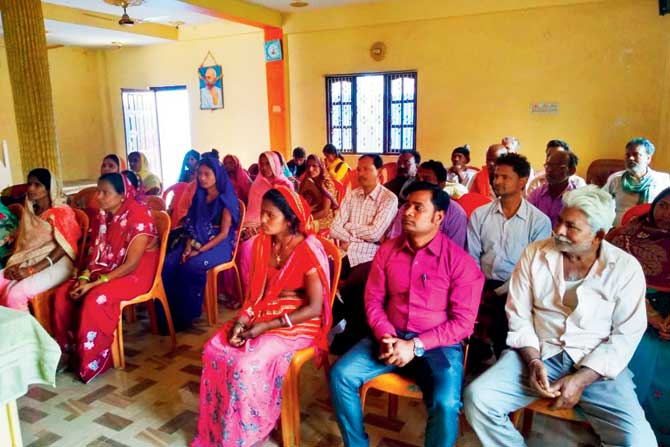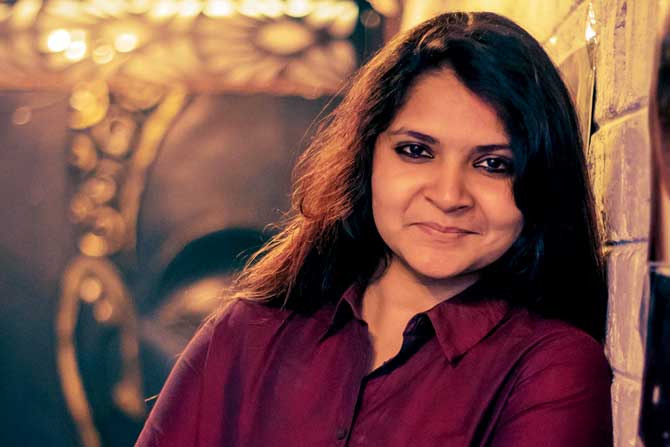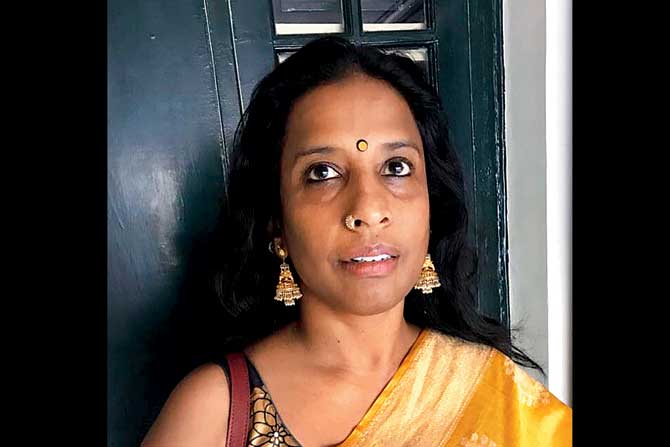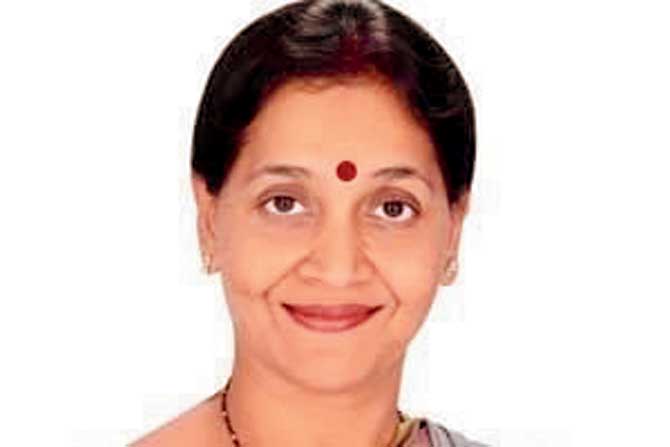A campaign for 50 per cent tickets for women in the upcoming Assembly elections in Bihar, has found support across party lines, with many hoping that the state will take a leaf out of its panchayat model, where women rule

Women voters queue up to cast their ballots at a voting centre in the village of Banbira, Samstipur district, on October 12, 2015. Tara Krishnaswamy of Shakti says that 10 of the 10 RJD women candidates who stood for elections, won. Similarly, eight out o
A few months ago, when India, neck-deep in the pandemic, was still figuring out a plan for Unlock 1.0, Tara Krishnaswamy was rallying women to become change-makers. The co-founder of Shakti, a non-partisan citizens collective, was delivering sessions at an online programme called She Represents by Indian School of Democracy, for aspiring female politicians, when a cohort of a dozen young women from Bihar said they-d like to volunteer in the upcoming Assembly elections in their state. This was a huge boost for Shakti, which has been campaigning for equal representation of women in legislation since 2018.
ADVERTISEMENT
The young women were "trained to understand what it takes to be part of a political campaign, build momentum, and work along with volunteers towards a common goal". They have now become instrumental in spearheading Shakti-s Selfie and Call Campaign, which saw members from the collective along with various grassroot groups from Bihar reach out to elected female members of Bihar panchayats, nyay panchayats and women MLAs to echo the demand for 50 per cent female candidates in the Assembly elections, scheduled for next month.
While 50 female representatives in local bodies sent across selfies to show solidarity with Shakti-s campaign, 16 female MLAs across JDU, RJD, INC and the BJP have assured to raise the issue with their respective parties. "This is a landmark effort for women-s political rights," says Krishnaswamy. The 50-odd mukhiyas and sarpanches together represent the voices of three lakh voters, while the 16 female MLAs represent the voices of 2.3 lakh voters each, adding up to nearly 37 lakh voters. "Many men have also joined hands with us, to further our cause. Their support will go a long way."
Bihar-s women have always been a driving force in the state as well as the country-s electoral politics. Last year-s Lok Sabha elections saw a voter turnout of 59.92 per cent women, against 55.26 per cent men. Yet, according to a report by citizen-led non-political NGO Association for Democratic Reforms ADR, only nine per cent 56 women candidates contested last year-s elections. Of the 40 overall winners, only three women eventually secured a berth in the Centre.
Another disturbing trend that Shakti observed was the drop in female representation in the Assembly over the last decade. While 34 women MLAs were elected to the Legislative Assembly in 2010, the numbers had dropped to 28 by 2015, which is just about 11.5 per cent. "But if you look at the data on the Election Commission site, women have a greater chance at winning elections. In the last Bihar elections itself [2015], 10 of the 10 RJD women candidates who stood for elections, won. Similarly, eight out of 10 JDU women candidates, and four out of five Congress women, won seats for their parties," says Krishnaswamy. Their absence in legislation, despite having such a strong electorate backing them and winnability record, boils down to lack of opportunity, she adds. And political parties alone can fix this by reserving more tickets for female candidates. But for that, women will need to campaign more strongly.

Kanksshi Agarwal of the NETRI Foundation has been training women in Bihar to realise their political ambitions
This is where the work of Urmila Singh, who runs the local NGO, Sakhiree Mahila Vikas Sansthan, has proved to be effective. Since the early 1990s, Singh has been vociferously pushing for greater representation of women in panchayat elections. Her efforts reaped rewards, when in 2006, Bihar became the first state in the country to reserve 50 per cent seats in local bodies for women—the 73rd and 74th amendments to the Constitution in 1993 had already reserved a third of seats for them. "But kaam toh purush hi kar rahe the," says Singh, in a telephonic interview. According to her, most of the women who joined these bodies were dummy candidates, who were placed there by their fathers, husbands, brothers or sons. "Many of them were uneducated, and had no idea about governance. Their men took all the decisions for them," she says. The tokenism is not what Singh had dedicated her life to. She started conducting meetings with locally elected female representatives to prepare them to take on challenges, on their own. "It was not easy to convince them to participate. But just getting them to attend the meetings was a good start." Prabhavati Devi, a member of the gram panchayat, from Kanhauli, Bihar, is one of the many women, who participated in Singh-s meetings. "Gharelu hinsa [domestic violence] aur baal vivaah [child marriage] ke vishay main humein bahut seekh mili hai," says Devi, who takes her learnings back to women in her village. Her background—she belongs to the extremely backward caste EBC, Nonia—has been an impediment, too. "Hum mahilao ko vote dena chahte hain," says Devi, who feels that a female representative from her constituency will help empower disadvantaged women from her community. Singh, who joined Shakti-s campaign, hopes political parties in Bihar will emulate the model implemented by its panchayats. "Hum toh issi umeed mein kaam kare rahe hain," she says.

Kanksshi Agarwal
Like Singh, Kanksshi Agarwal of NETRI Foundation, a bootstrapped incubator and accelerator, is also training women in Bihar to realise their political ambitions. "The challenges [for women] are individual, social and political," says Agarwal, who is also an independent policy researcher and political strategist. Having done a comparative study on Women-s Political Representation in South Asia, she says that "money, muscle, misogyny, myth and misinformation" are common barriers in their participation. "I recently asked one of the participants in our Bihar training programme, if she-d like to contest elections, and she said, -I am still young-. There is a lack of understanding and preparedness. Women are not told that they can use politics, and quite early on, as a tool for change," says Agarwal. She wants to change that perception by creating effective future leaders, who can build their own public narrative, identify and deal with issues from a gender perspective, and also use technology to generate attention to their work. "The work that Shakti is doing is definitely helping put pressure on political parties. Things are not going to change for these women, if parties don-t field candidates. So, while Tara and other groups are demanding more representation, we are simultaneously preparing women for that eventuality."

Tara Krishnaswamy, co-founder of Shakti
Krishnaswamy says her demands are not misplaced. "BJP says that they have three crore women party workers, and CPI M claims they have one crore. Of course, all parties inflate their figures. But my point is that even if you have one-tenth of that number, the number of tickets being given to women is dismal. BJP only reserved eight per cent tickets for women in last year-s Lok Sabha elections. The reservation percentage for women by all other parties was also in single digits, with the exception of a few. There is no question of winning and representation, if you are going to block your female candidates," she says, adding, "Women will stand [for elections], but first you need to give them a chance." The number of female participants in politics, she says, shows that they are there and waiting.

Amita Bhushan, MLA
MLAs like Amita Bhushan, representing Bihar-s Begusarai constituency on a Congress ticket, have been pushing for the same with their party. "Bihar-s local body elections are a great example of how reservation [for women] can bring change. It-s true that in the beginning, many of the elected female representatives [in the panchayat] needed help from their male counterparts. But when they returned for the second term, they were in command. They didn-t need their husbands or fathers to guide them," she says. "Today, there are so many issues concerning women that need looking into. These get diluted, if you don-t have enough women discussing it in the sadan [legislative house]. We need more of us, and that-s why I am asking for it."
Keep scrolling to read more news
Catch up on all the latest Mumbai news, crime news, current affairs, and a complete guide from food to things to do and events across Mumbai. Also download the new mid-day Android and iOS apps to get latest updates.
Mid-Day is now on Telegram. Click here to join our channel @middayinfomedialtd and stay updated with the latest news
 Subscribe today by clicking the link and stay updated with the latest news!" Click here!
Subscribe today by clicking the link and stay updated with the latest news!" Click here!







